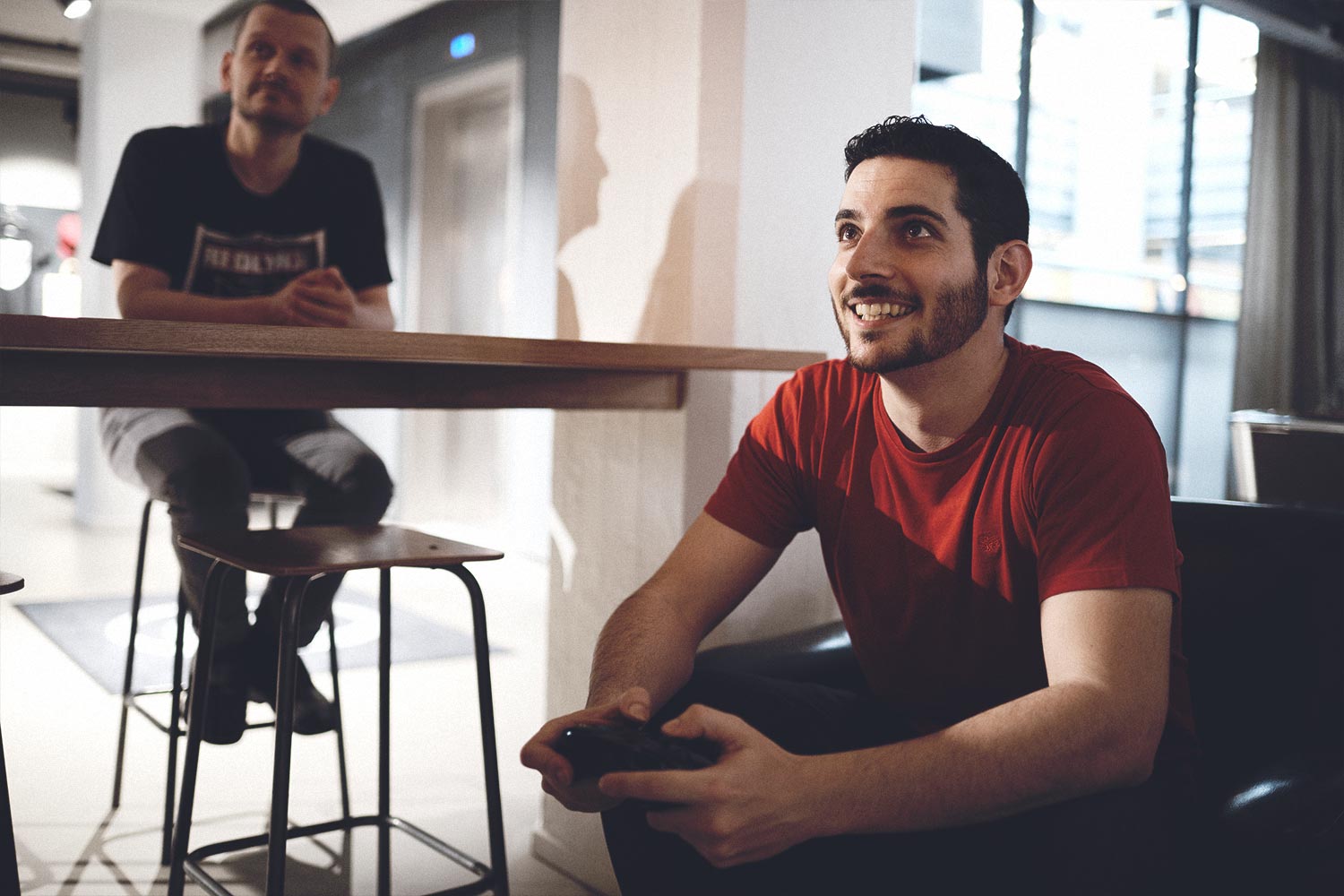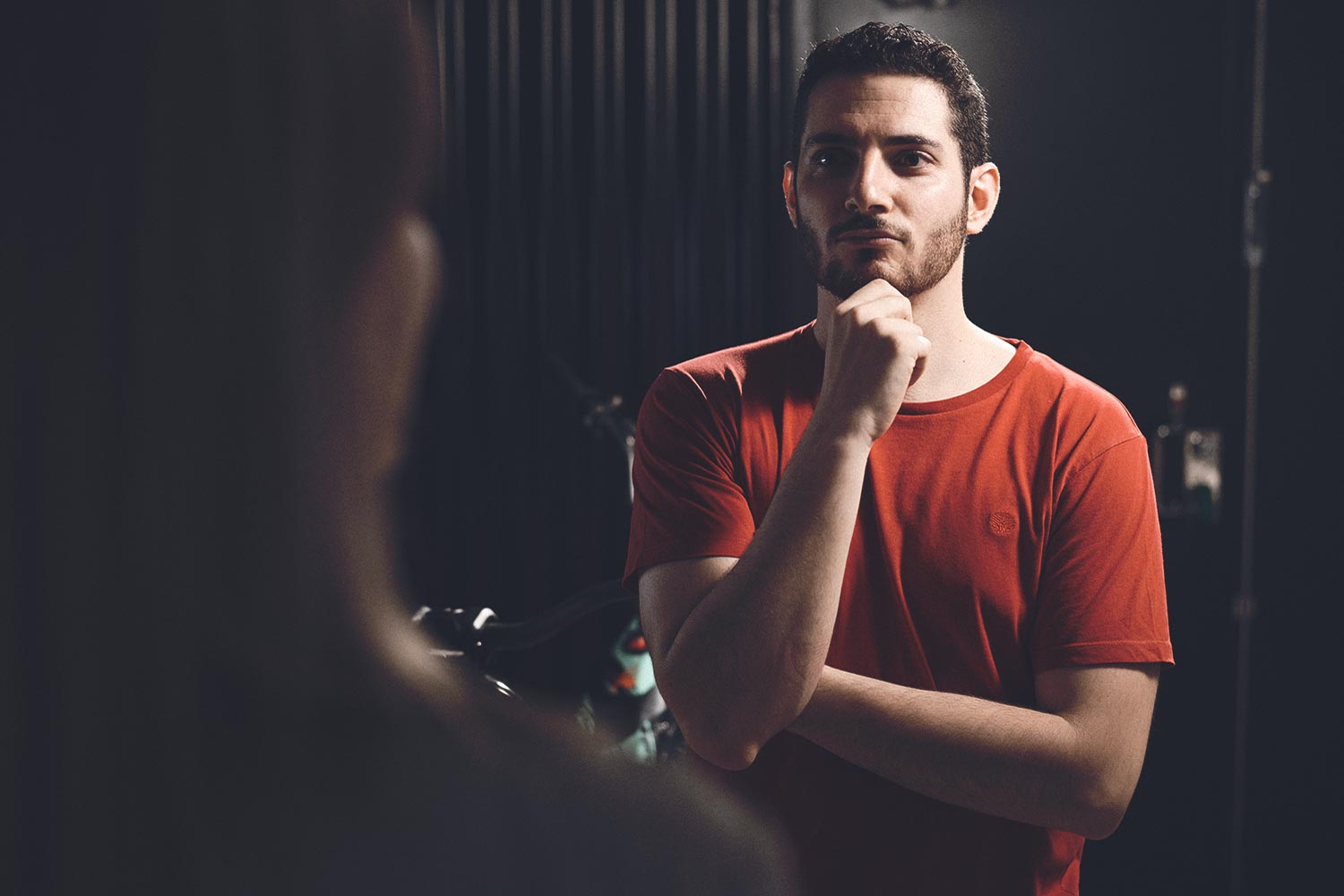What does a Live Producer do?
Producers help the team to deliver the creative vision. Our job is to make sure that the players enjoy the game experience. The quality, content and features need to be as expected. Live producers focus on the live and service aspects of the game, especially after the release. We manage the processes behind all live operations in the game, such as content releases, game updates, events and seasons.
I work on Trials Rising, which is heavy on user-generated content. We need to be on the top of moderating the content and making sure it follows the game’s code of conduct.
“Witnessing how a game evolves from conception to delivery, and then throughout its lifecycle, is what I love the most.”
When did your love for games begin?
I’ve been really excited about video games since I was super young. My family always supported my career choice. Back in the day, many people thought games were a waste of time. When I was 12, my teacher called my parents in for a regular chat. The teacher said: ”He is mature and has good grades and all, but he says he wants to make games.” Luckily, my parents just went: “Yeah, that’s totally fine.”
What’s your professional background?
Before producing games I worked in TV and advertising. The only other time I’ve heard the term producer is in the entertainment field. In the media industry producers work with budgeting and scheduling, making sure things happen. That’s also the case in the game industry, although games are an iterative form of media.
The main difference is that games are technological products, which need interactive elements, and require a whole additional set of processes to be produced. My background in producing TV and ads helps in my current job. It’s an asset to understand how creativity funnels into specific products.
What role does being people-savvy play in your work?
People skills are paramount in what I do. You deal with a very diverse group of folks with different backgrounds, profiles, skills and nationalities. Understanding who you’re talking to helps us communicate with each other. What seems like a risk for a programmer is not a risk for an artist. People see things in a different light.
The great atmosphere and positive vibes at RedLynx support people in coming up with ideas and expressing them. Specific contributions would be missed if we didn’t have this engaging and welcoming atmosphere. That adds variety to building inclusive products. Being part of Ubisoft means that globally you have over 18,000 colleagues.

What sort of networks have you created?
Ubisoft does a great job at supporting employee networking, for example through yearly conventions. When I first joined the game studio I also had discussions with other live producers in Canada, France, Germany and Sweden. Although we are all working on different projects and games at Ubisoft, we share a great deal.
Connecting with my colleagues has really helped me in my work. I learned about the company’s best practices and tools, as well as the processes behind producing live services for Ubisoft games. My colleagues shared about the technical setups they use to be reactive to players’ feedback and flexible to deliver services. These learnings made me ramp up and take into account the things that would assist in our project.
How do you manage the pressure of a live game?
I guess the threshold for stress is different for each person. I actually enjoy it because it keeps me alive! Our work culture is about working together. We share responsibility, and everyone is kept in the loop of what’s going on.
“You have to become very good at prioritizing tasks as a Live Producer”
You don’t only deal with the production of updates and content that are released in the live game, but also the input from all the players that are already enjoying the game, as well as the issues that need to be fixed to ensure a quality playing experience.
The thing that stresses me the most is becoming a blocker for someone’s work from proceeding. If someone is waiting for my decision, I want to deal with that first. It also requires learning how to delegate.
What keeps you passionate about your field?
Having fun at work helps us to be creative. We make room for improvements and iterations. The more fascinated people are about different topics, the better. For example, if a programmer is interested in fishing, just sharing about that might inspire someone else in the team to come up with a feature in a game.
Nacho’s tips for aspiring Live Producers
- Become great in project management. Understand the nature of timelines, resources, stakeholders and teams.
- Play a lot of all kinds of games: good and bad, all platforms. The more you understand games from the player’s perspective, the better you become at coming up with solutions. For instance, when you’re evaluating your own onboarding experience, you’ll have a better eye for improvements if you have been through many of them.
- Stay curious. Be eager to learn about everything. Production is a wide role. The more you deepen your knowledge in different topics, the better you’ll be in discussing with the diverse bunch of people you’ll be working with.
Check out our open positions and apply!


